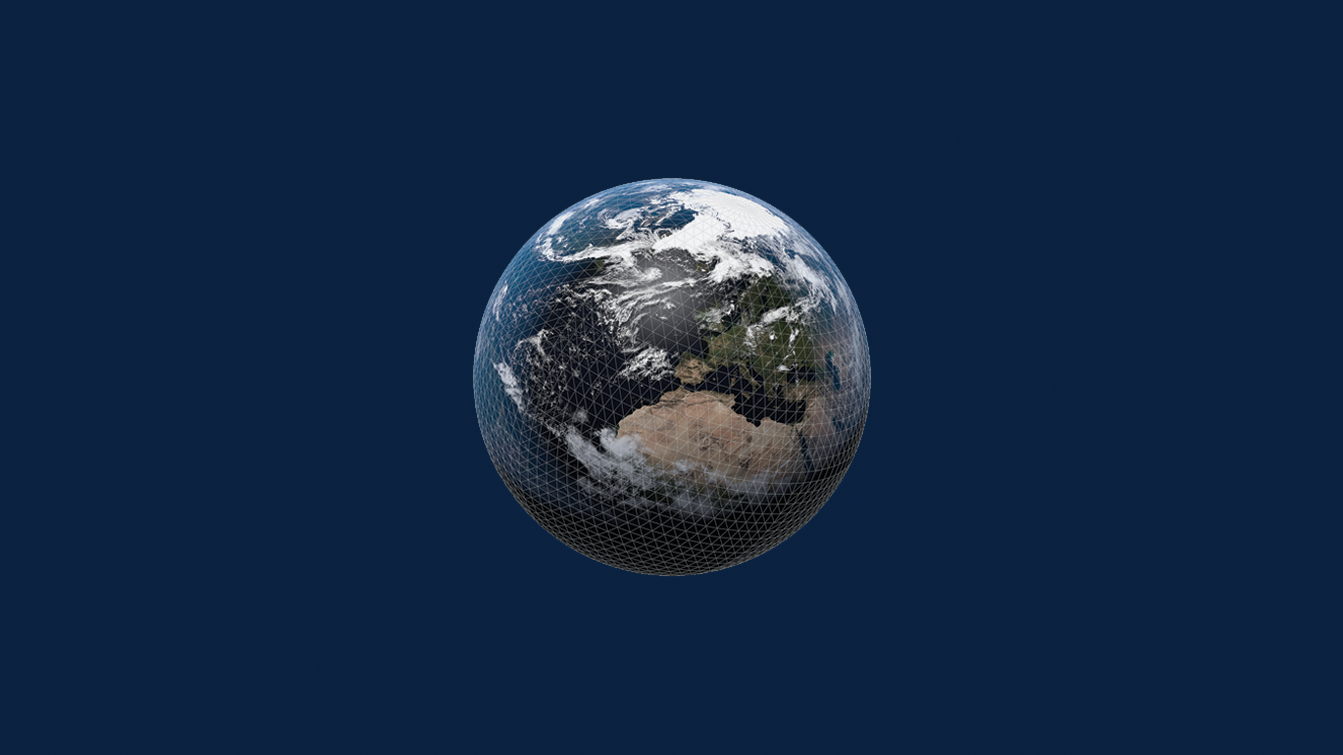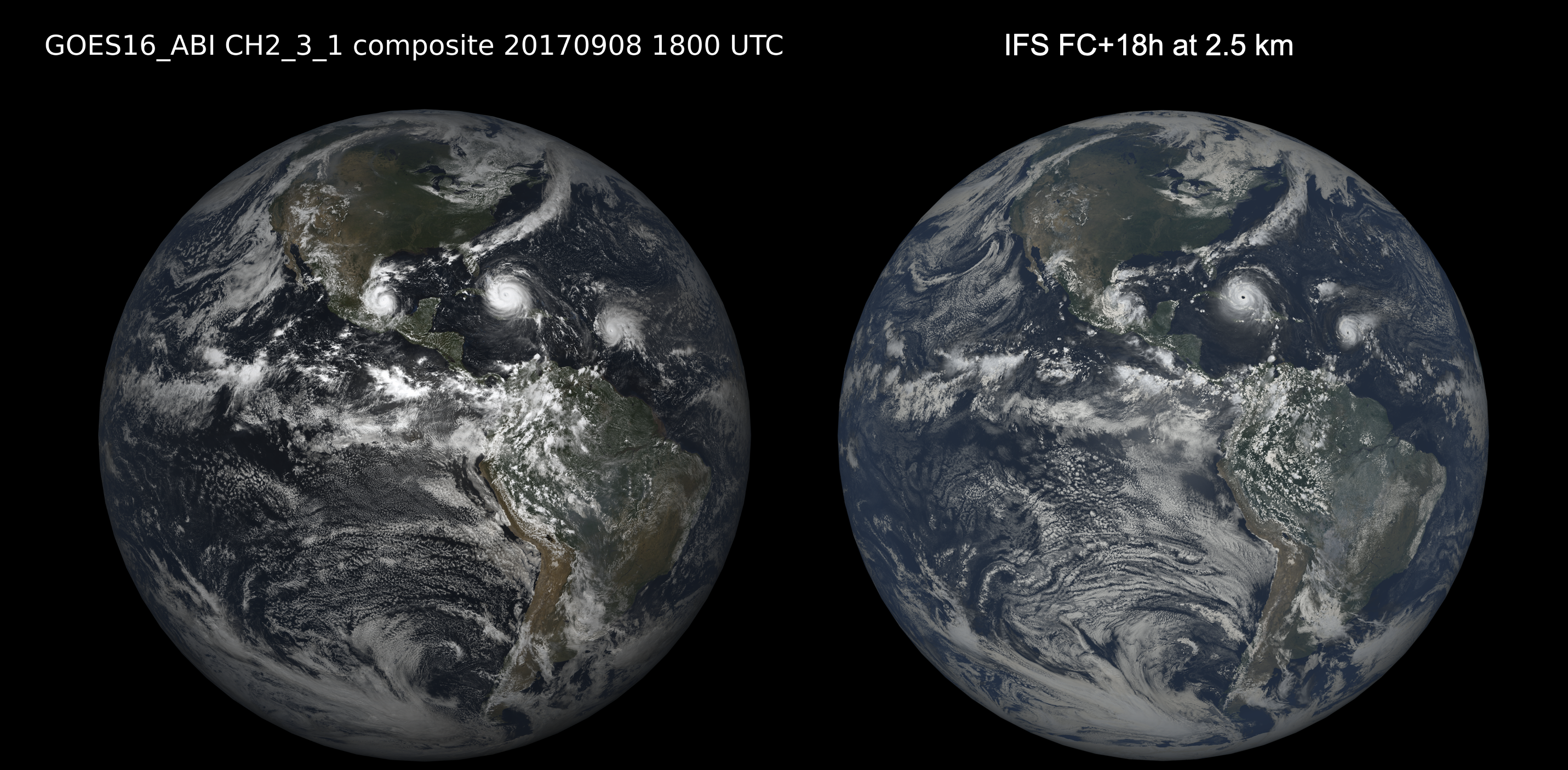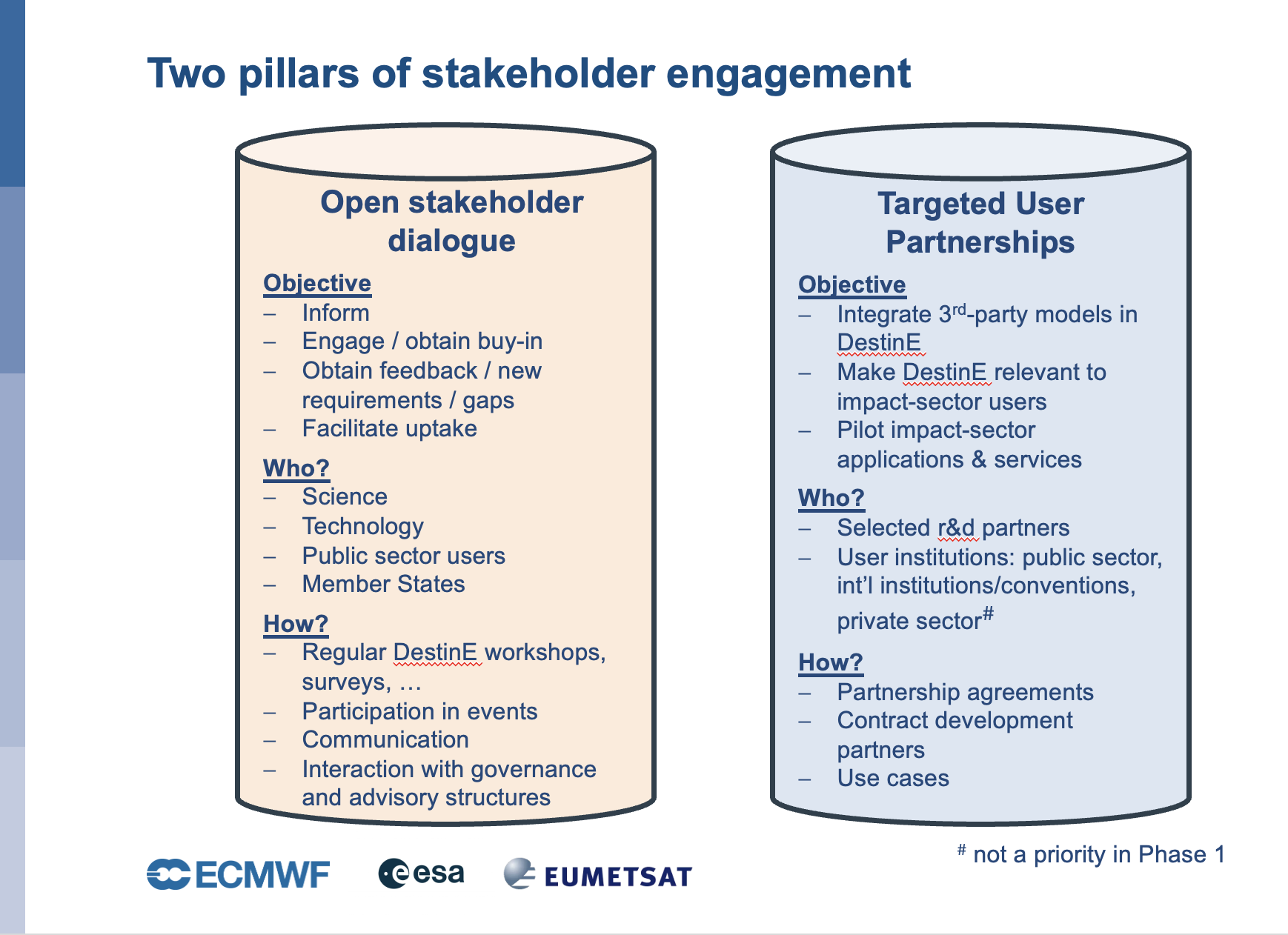Destination Earth meets German stakeholders
A first in a series

Back to ECMWF - Destination Earth main page
The German stakeholder day illustrated important existing and emerging synergies and partnerships where Destination Earth benefits from and functions as a supporting element of national strategies
Since its official launch on March 30, 2022, Destination Earth has been steadily increasing its activities. The initial invitation to tender’s process is well under way and the European Centre for Medium range Weather Forecasts (ECMWF) team leaders have attended several events meeting users, partners and the scientific community.
On 14 June, the German Federal Ministry for Digital and Transport and the German Space Agency (DLR) gathered the national stakeholders in a workshop to inform about the status and future plans of Destination Earth.
The objective of the online workshop gathering representatives of the German scientific community and other stakeholder institutions was to start building a community around Destination Earth in line with ECMWF’s vision of partnerships and stakeholder dialogue at all levels being essential to the Digital Twins implementation and future operations.
ECMWF, together with the other two entrusted entities developing Destination Earth, the European Space Agency, and EUMETSAT under the leadership of the European Commission, plan to engage in similar discussions and workshops with national stakeholders of other partner Countries.
Director of Destination Earth at ECMWF, Peter Bauer, kicked-off the session describing the Centre’s vision for DestinE as an international technology and science endeavour pushing the limits of Europe’s climate and weather prediction science through unseen computing capabilities, and integrating user-serving applications as part of the process.

RTTOV-MFASIS: Simulated satellite image in the visible range. Philippe Lopez
RTTOV-MFASIS: Simulated satellite image in the visible range. Philippe Lopez
Digital Technology Lead for Destination Earth at ECMWF, Nils Wedi, later detailed the characteristics of the Digital Twin Engine and the two first Digital Twins, and recalled the project inherits of a legacy of more than 40 years' experience in data assimilation, time-critical modelling and supercomputing developed by ECMWF.
The Digital Twin Engine is the software infrastructure, the complex supercomputing gearbox that will handle the heaviest tasks so that the Digital Twins operate smoothly and are compatible with the wider European supercomputer environment and the future digital twins developed by other partners.
Users and partnerships, at the core of Destination Earth
Jörn Hoffmann, Application Partnership Lead for Destination Earth at ECMWF, took the floor next to precise the stakeholder engagement, partnerships policy and user-codesign approach.
Hoffmann explained how the stakeholder engagement will be an overarching element throughout the Destination Earth journey involving the Member States, Public Sector users and the science and technology communities.
“It was impressive to see how much interest there is in the science and applications of DestinE. We will continue working with stakeholders in Germany and Europe for connecting many, often substantial initiatives.”

The use cases approach is part of the wider user partnerships policy to ensure that Destination Earth is relevant to the impact-sectors, open to 3rd party models and technologies and adapted to sector needs.
The German Stakeholder workshop gathered some 80 participants from the broad German scientific community (among others DLR, German Research Centre for Geosciences GFZ, Helmholtz Center for Environmental Research UFZ, Max Planck Institute for Meteorology and the German Climate Computing Centre DKRZ as well as representatives of several relevant German Federal Ministries and agencies. ough the media and the formation of legal systems.
The many opportunities of getting on board
ECMWF has recently published its fourth invitation to tender seeking for use cases to demonstrate the added value of Destination Earth’s enhanced modelling capabilities and adapting the platform to the user’s needs.
The Use Cases is the last of the first series of invitations to tender (ITT) opened by ECMWF in the initial phase. This call for tender will shape the platform to make sure it is designed to fulfil the needs of the scientific community, policymakers and other targeted users of the platform.
Successful candidates will create and implement concrete examples of the applications of the Destination Earth interactive modelling capabilities to solve specific problems of sectors such as water management, agriculture and forestry, renewable energy or air quality to cite a few examples.
The fields being sought are those inherent to ECMWF’s vision for the Digital Twins and the Digital Twin Engine such as machine learning, user interactivity, enhanced data quality and co-designed workflows.
The Use Cases ITT is open until July 14.
The ITT to provide visualisation and immersive technologies for the ECMWF is open until June 26.
The ITTs to develop the Climate Change Adaptation and the Weather-induced and Geophysical extremes digital twins are already closed and the successful proposals will be announced shortly.
Destination Earth is a European Union funded initiative launched in 2022, with the aim to build a digital replica of the Earth system by 2030. The initiative is being jointly implemented by three entrusted entities: the European Centre for Medium-Range Weather Forecasts (ECMWF) responsible for the creation of the first two ‘digital twins’ and the ‘Digital Twin Engine’, the European Space Agency (ESA) responsible for building the ‘Core Service Platform’, and the European Organisation for the Exploitation of Meteorological Satellites (EUMETSAT), responsible for the creation of the ‘Data Lake’.
We acknowledge the EuroHPC Joint Undertaking for awarding this project strategic access to the EuroHPC supercomputers LUMI, hosted by CSC (Finland) and the LUMI consortium, Marenostrum5, hosted by BSC (Spain) Leonardo, hosted by Cineca (Italy) and MeluXina, hosted by LuxProvide (Luxembourg) through a EuroHPC Special Access call.
More information about Destination Earth is on the Destination Earth website and the EU Commission website.
For more information about ECMWF’s role visit ecmwf.int/DestinE
For any questions related to the role of ECMWF in Destination Earth, please use the following email links:
